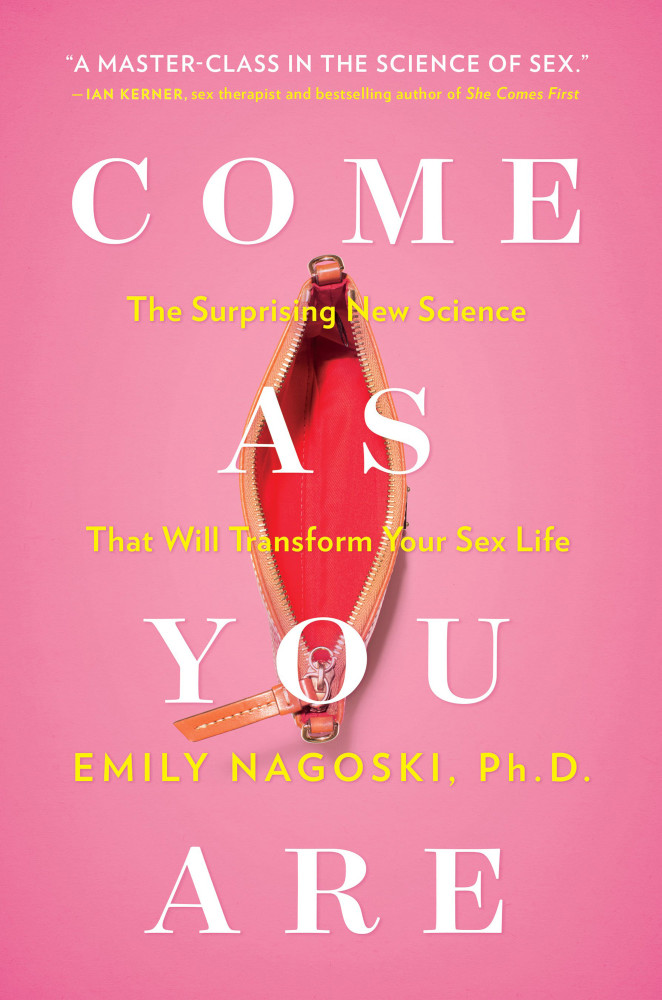By Heidi Stevens
Chicago Tribune.
Emily Nagoski had to fight to call her new book, “Come As You Are.”
Pretty benign, right?
Consider the subtitle, “The Surprising New Science That Will Transform Your Sex Life,” and you see what the fuss is about.
You also see why the book is so critical.
“We get so many messages about how we’re inadequate, we’re broken, we’re not doing it right,” Nagoski, a women’s sexuality instructor at Smith College, told me. “And we somehow trust other people’s opinion more than what our bodies are trying to tell us.”
Nagoski’s book is receiving rave early reviews. Sex therapist Ian Kerner calls it “a master class in the science of sex.”
Internationally renowned relationship expert John Gottman calls it “an absolutely necessary guide for all couples.”
“I’ve been telling anyone who’ll listen that ‘Come As You Are’ is the most important book I will ever publish,” Sarah Knight, senior editor at Simon & Schuster, writes in the book’s letter to readers. “The value and urgency of its core message cannot be understated.”
That message, above all, is that you’re normal.
“We’re all made of the same parts, but in each of us, those parts are organized in a unique way that changes over our life span,” writes Nagoski, who has a doctorate in health behavior and completed a clinical internship at the Kinsey Institute Sexual Health Clinic. “No organization is better or worse than any other, and no phase in our life span is better or worse than any other; they’re just different.
“We are all the same. We are all different. We are all normal.”
I spoke with Nagoski recently. Following is an edited transcript of our conversation.
Q: You write, “Let’s make the world a better place for women’s genitals.” Why is that important?
A: The way you feel about your body is the starting place of opening the door to sexual pleasure and all forms of pleasure, really. That self-critical voice that says you’re inadequate or there’s something wrong with you, we have a huge opportunity to improve our sex lives by noticing that voice and realizing it just got planted in our brain by the culture.
Q: We have a lot of misconceptions about where things are and what they do, don’t we?
A: The education we’re receiving is so profoundly inadequate. It’s not just that we don’t get enough education, it’s that the education we do get is filled with plain old mistakes.
Q: Is that how we end up with legislators who think women’s stomachs are connected to their vaginas?
A: Right. Like the digestive tract is a direct route. I’ve been a sex educator for 15 years at this point, and I keep being surprised at the things my culture taught me that were just wrong.
Q: What are people most surprised by in your book?
A: Chapter 7 on responsive desire. The idea that you can be normal and not experience spontaneous desire is huge. One person told me it saved their marriage. One person can experience spontaneous desire and be convinced the other person is broken because she never sort of out of the blue says, “Hey, how about we do a thing?” When you learn that all you have to do is create a context that allows desire to emerge, you realize you’ve been trying to fix something that isn’t broken.
Q: Another title for your book might have been, “You Are Normal.”
A: It doesn’t sound aspirational, but in a way it’s the most aspirational idea of all. You are already enough. You have what you need to have an expansive sex life, you just need to know how to do that. … We talk so much in our culture about how much we want sex or not, how much we have sex or not. We don’t talk enough about how much we like sex. How much we enjoy sex or not. When you put the pleasure piece back in the formula, it makes a whole lot more sense.














































































































































































































































































































































































